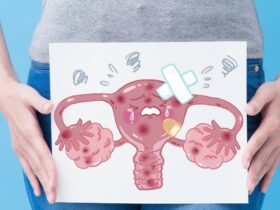United States: The study results made clear that menopause activated more plaque deposits in women’s arteries, which led to their heart risk being the same as men’s.
Heart Risks in Post-Menopausal Women
“After menopause, women have much less estrogen and shift to a more testosterone-heavy profile,” explained study lead author Dr. Ella Ishaaya. “This affects how your body stores fat, where it stores fat, and how it processes fat; it even affects how your blood clots. And all of those [changes] increases your risk for developing heart disease.”
At Harbor-UCLA Medical Center in Torrance, CA, Ishaaya is a seasoned internal medicine physician on the ACC team who will present their results on Sunday at the annual ACC meeting in Atlanta, as reported by The Associated Press.
Insights from Statin Users
For the new research involving her group, Ishaaya’s group traced the outcomes for 579 post-menopausal women who’d already been added to statins to help them manage their cholesterol.
A CAC scan was also performed, which tracks the concentration of fats, calcium, and additional vascular disease-related material present in the heart’s arteries. There were two CAC scans for each woman at annual intervals in time.
For people with higher CAC scores, their chances for heart attack or other related cardiac events are among the highest, according to the researcher’s findings.

In this study, Ishaaya’s team divided the women into three groups based on their CAC scores: pick the numbers from 1 to 99, 100 to 399, and 400 and above.
The research was able to establish that women had a sharper increase in CAC following menopause in comparison to men of similar age who have similar CAC readings.
These women responded, on average, with a relative increase of the CAC score level of about 8 points after one year from the beginning of the study. The 4-point rise in men is being doubled.
Those female students with medium scores for the initial examination gained 31 points on average, representing a nearly twofold improvement compared to the male’s increment of 16 points.
The women in the middle-income bracket experienced the highest rise, with their scores increasing by around 31 points—almost double the 16-point increase that men had.
It didn’t matter whether you were a woman or a man in the group of people who started with high CAC scores. According to the scientists, the rise in points did not vary.
Implications for Treatment
Accordingly, menopausal women demonstrate a quicker increase in arterial atheromatous deposits compared to their male counterparts.

Why might they be? Obviously, as reported by Ishayaa, the decline in estrogen levels is heart-unhealthy, so the latter has an adverse effect.
She added that it really surprised her, as the women on statins for cholesterol-lowering had seen the increase in arterial plaque entirely. Thus, the treatment could need higher statin levels in women compared with their menstruating counterparts.
“This is a unique study cohort of only post-menopausal statin users that signals that post-menopausal women may have the risk of heart disease that is on par with males,” Ishaaya said in an ACC news release, as reported by The Associated Press.
“Women are under-screened and under-treated, especially post-menopausal women, who have a barrage of new risk factors that many are not aware of,” she added. This study raises awareness of those risk factors and opens the door to indicating the importance of increased screening for coronary artery calcium (CAC).”
As the evidence was shared at a medical meeting, the effectiveness of these findings should still be deemed tentative until the publication of the article in a scientific journal.











Leave a Reply